

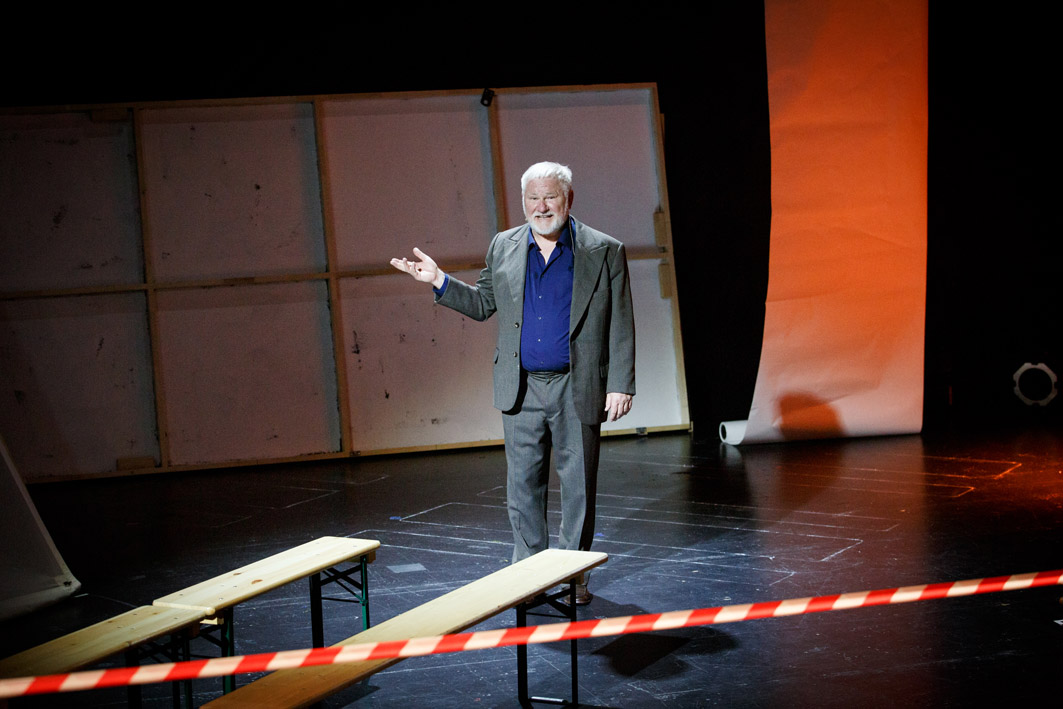
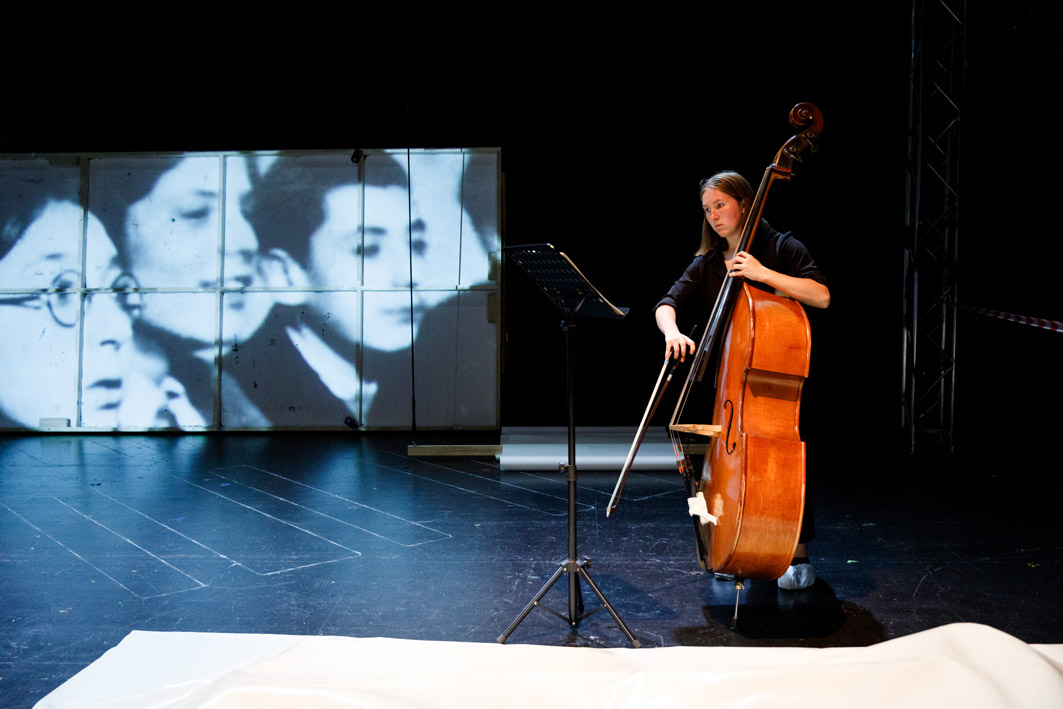
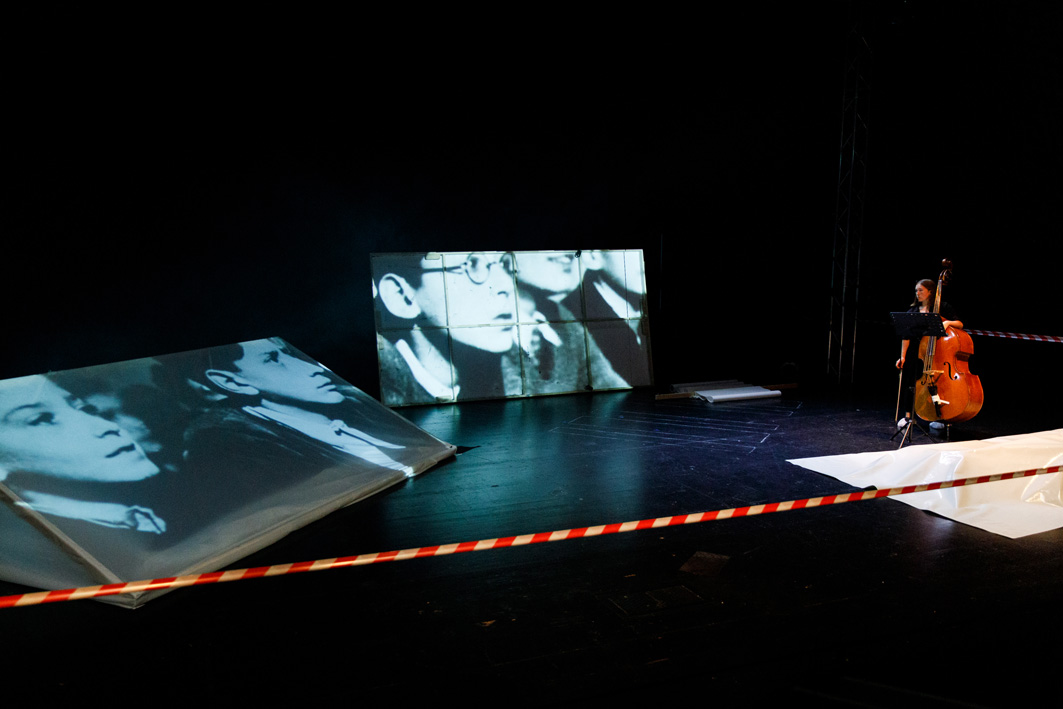
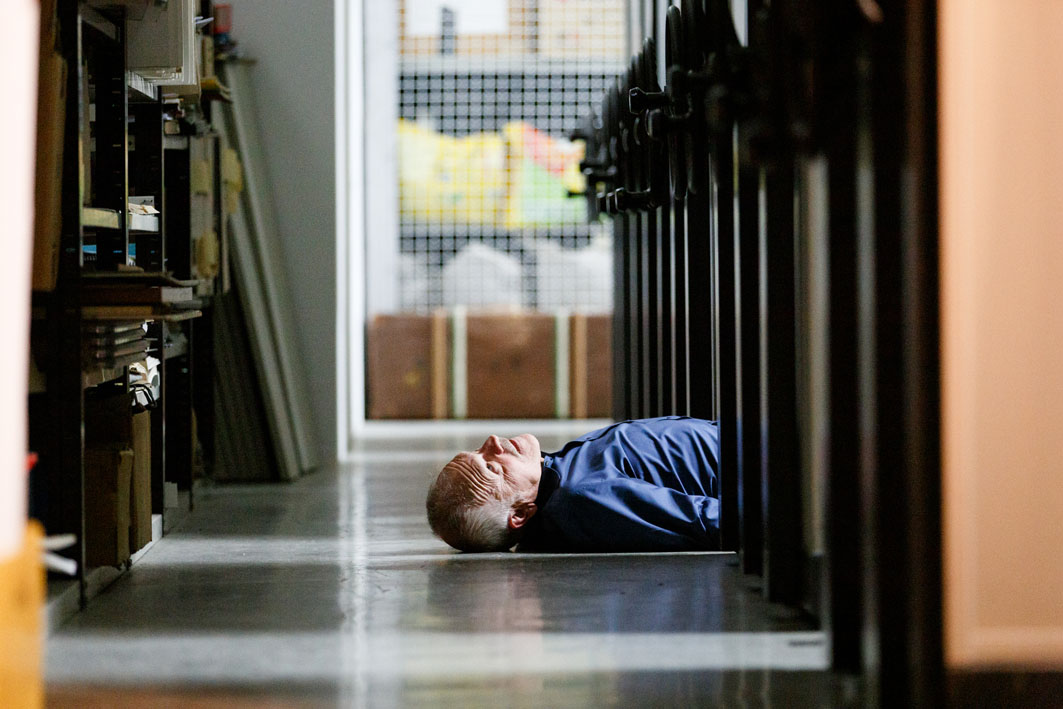
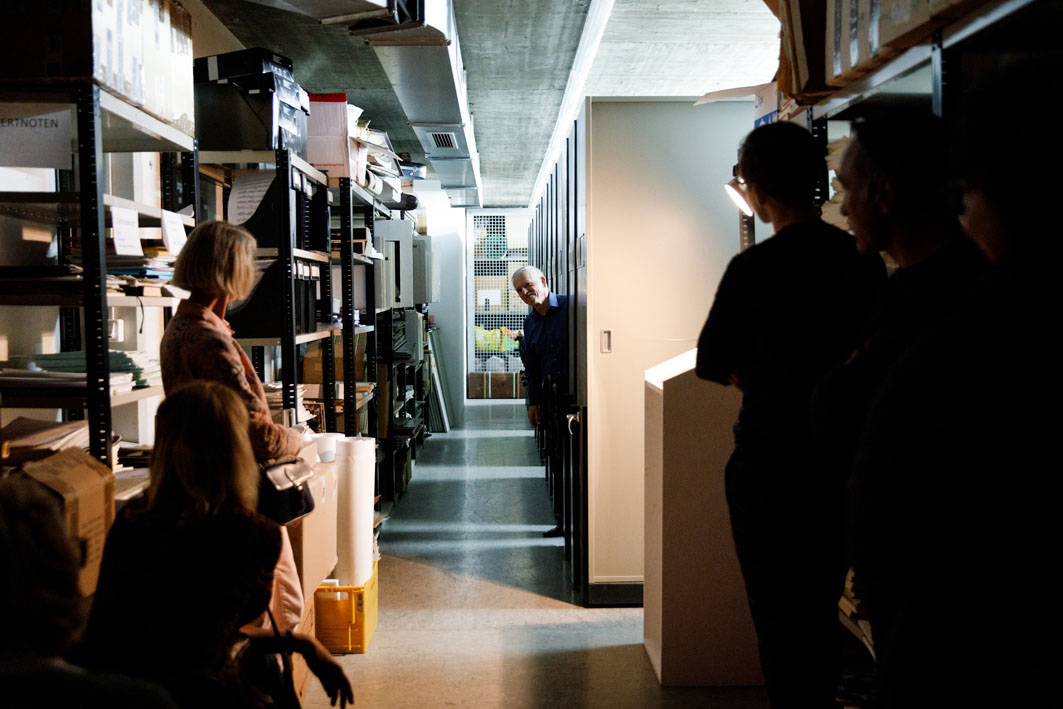
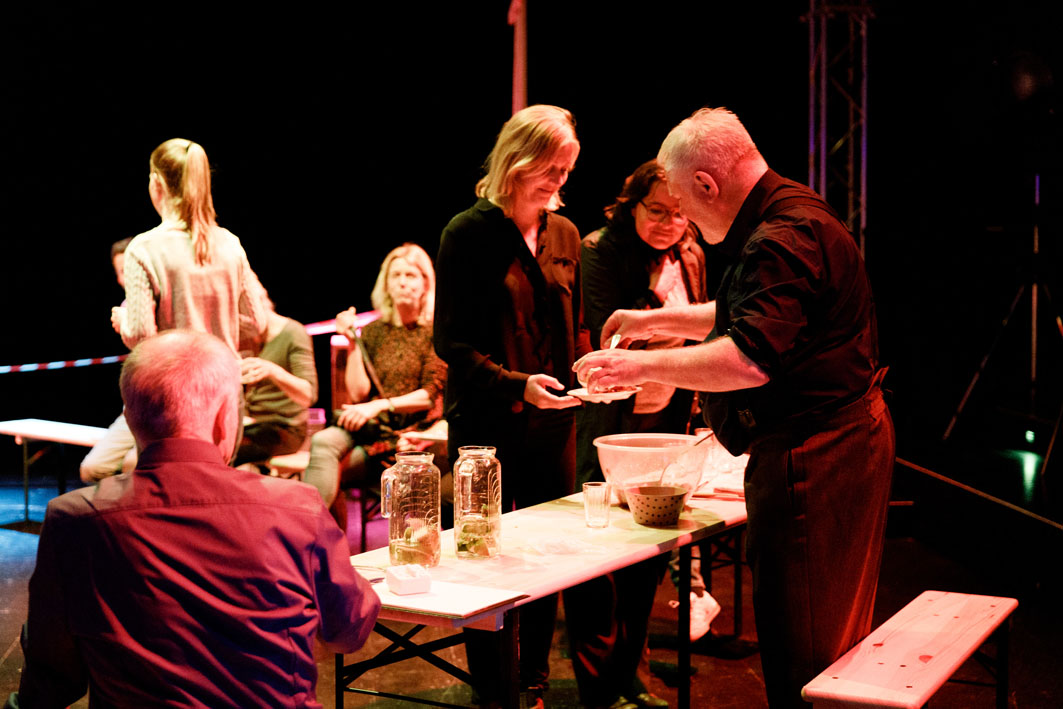
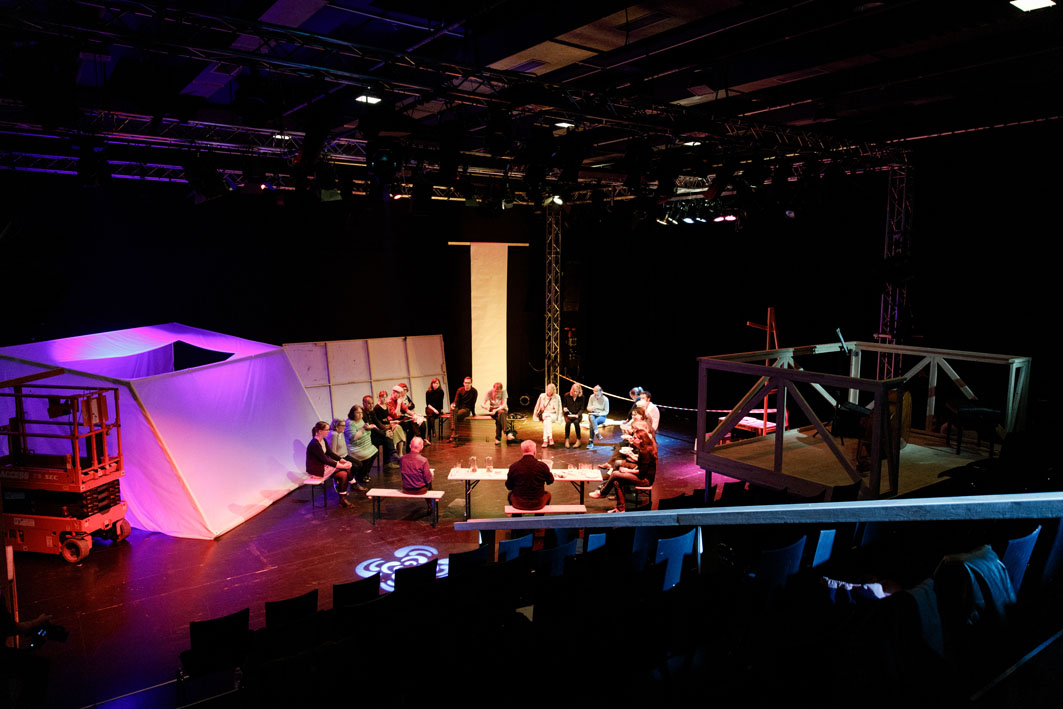
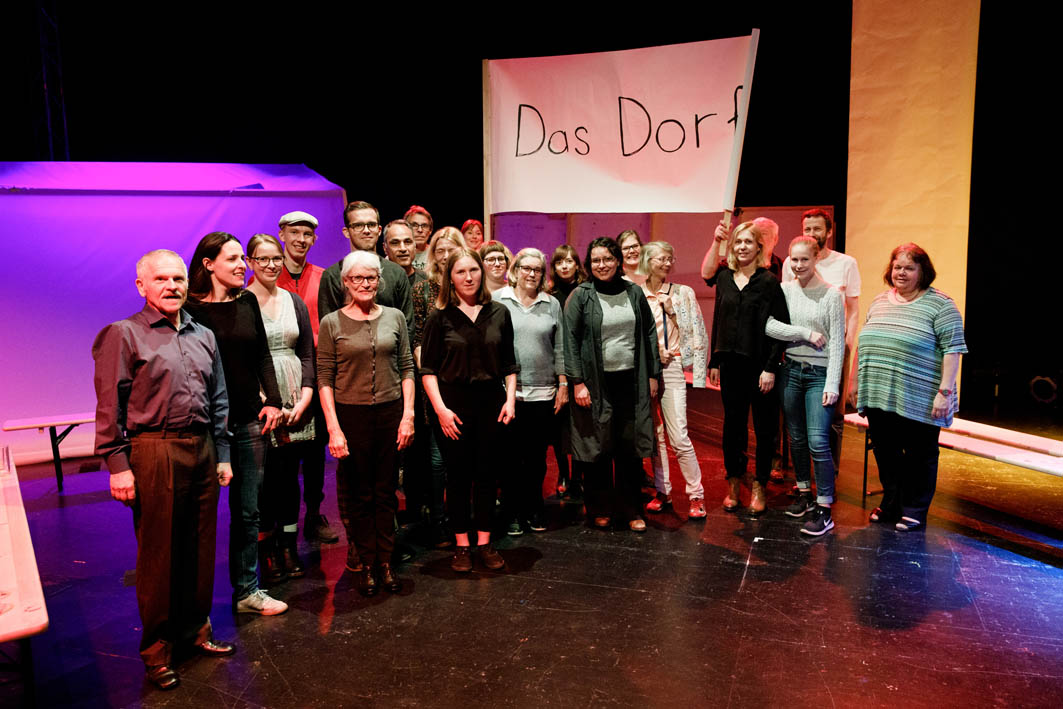
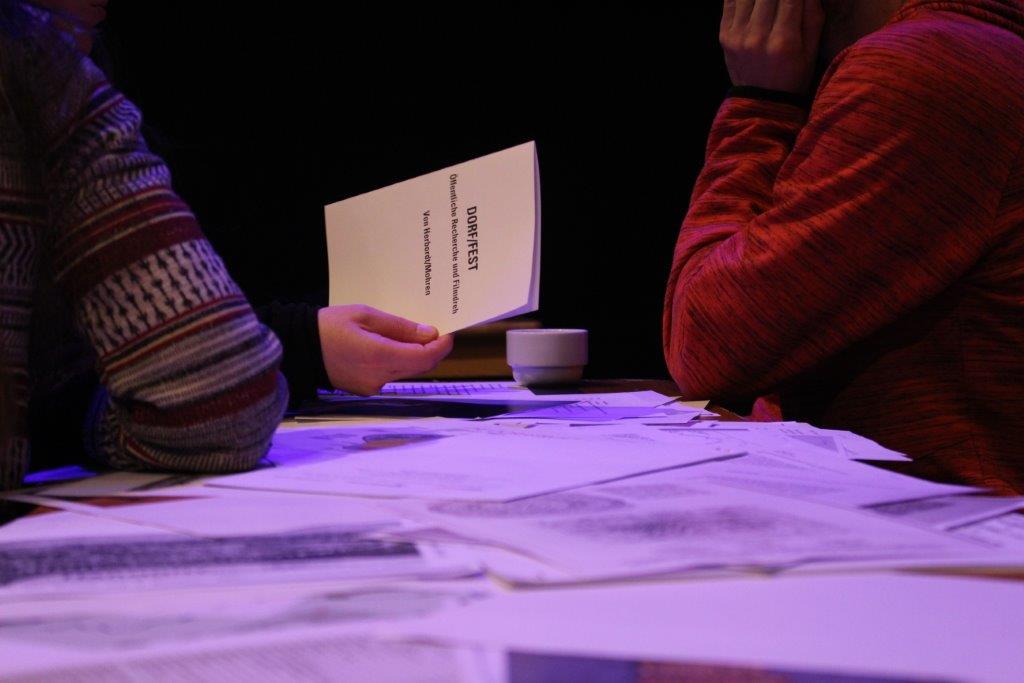
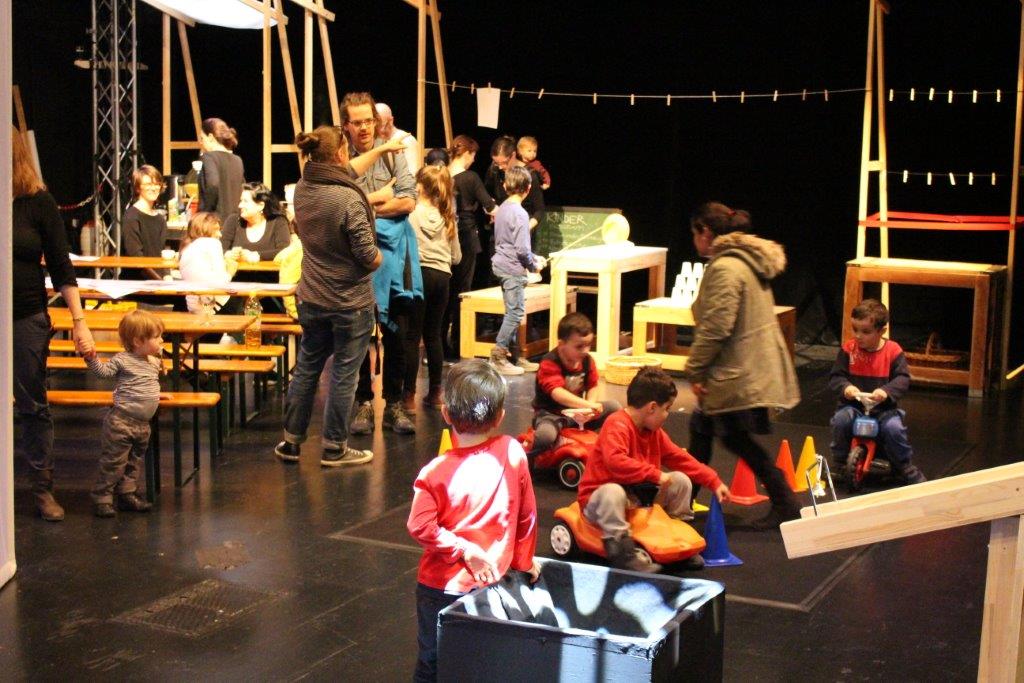
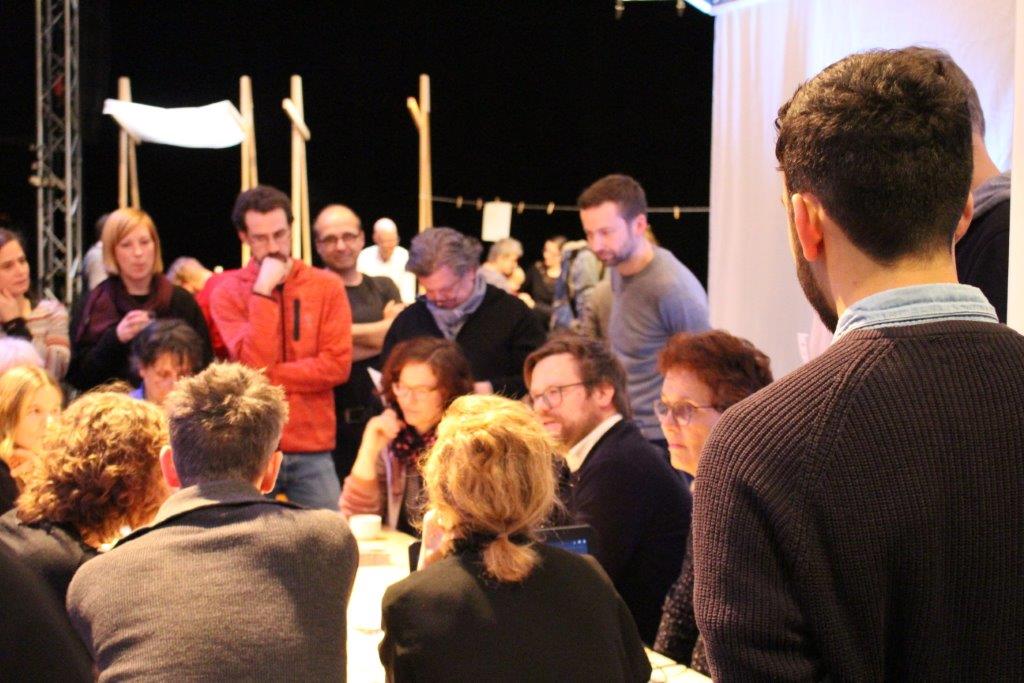

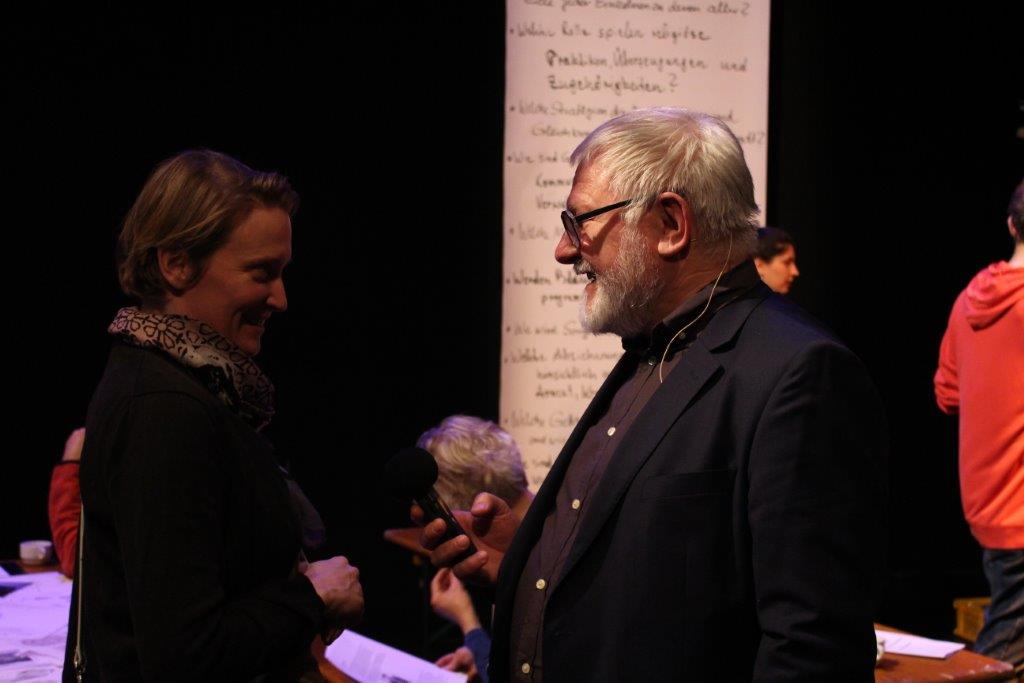
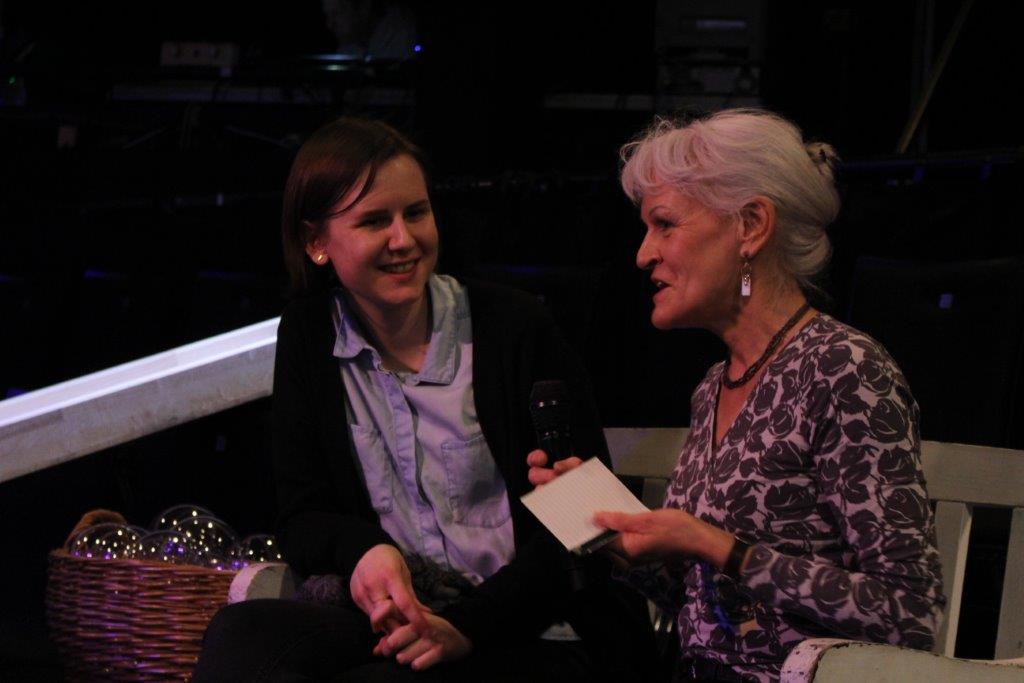
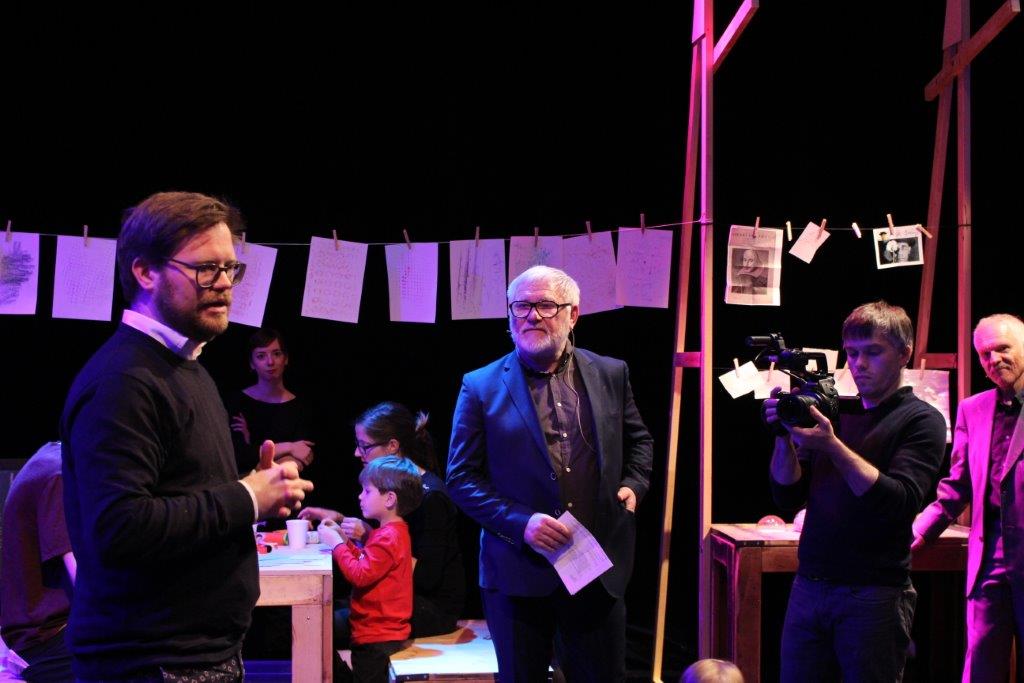
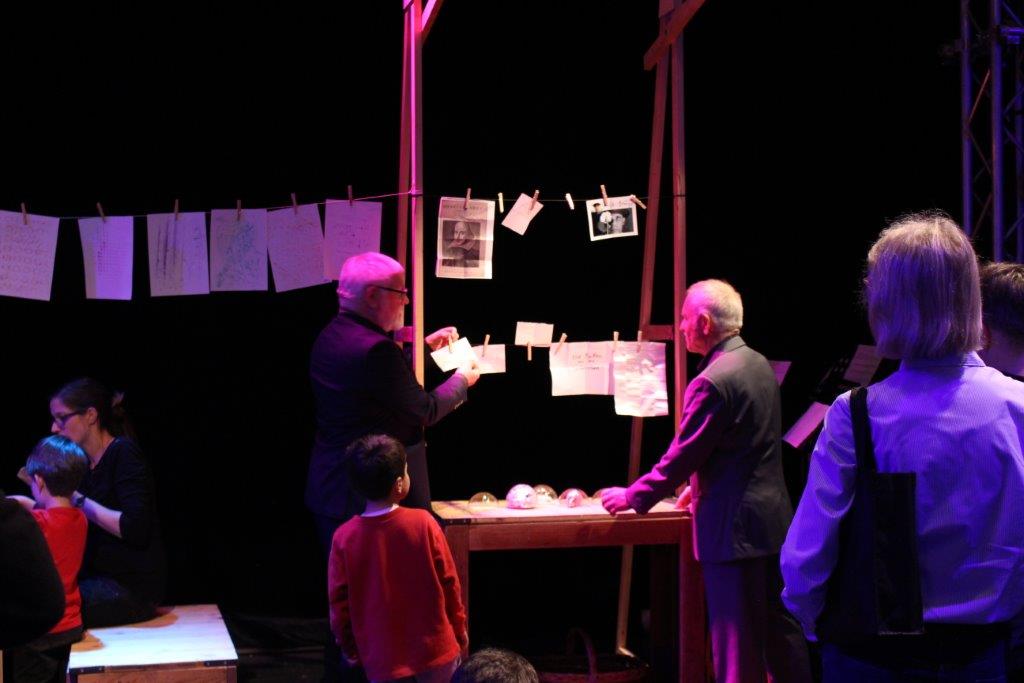
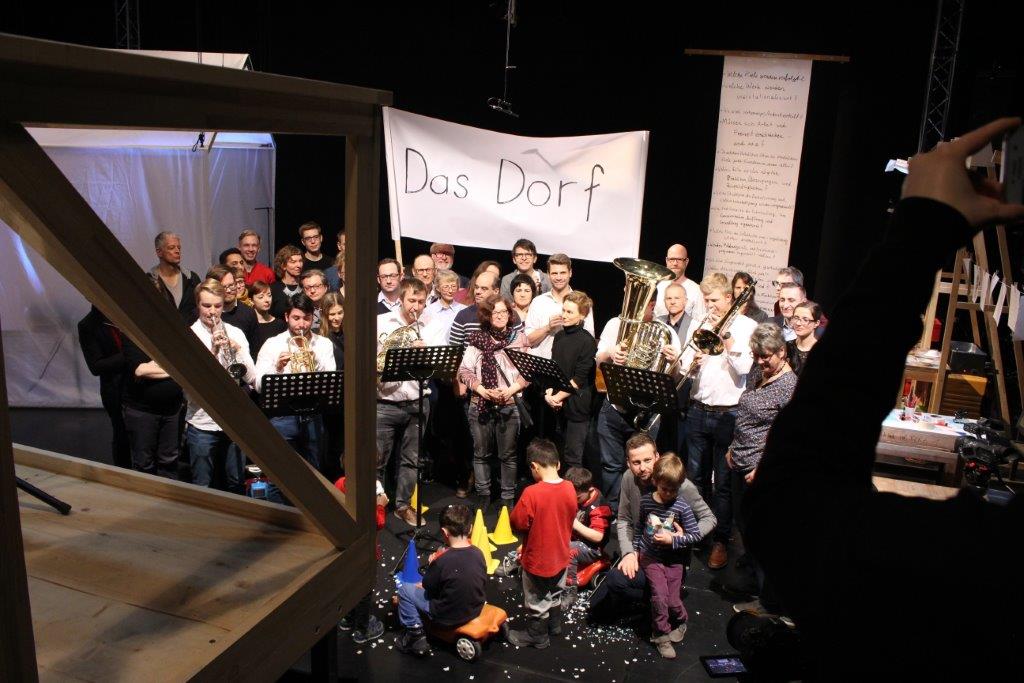
Photos: Felix Grünschloss und Jonas Kessler
The Village
Village structures are exposed to numerous transformation processes – provided they do not want to turn into isolated regions. Dying village centres, diminishing infrastructures, a trend of depopulation, population ageing and a political shift to the right require new concepts for action. Model regions are being proclaimed and spatial pioneers are starting to get active. What can theatre as an institution learn from this structural change in order to not turn into a suspended institution in public life itself?
‘The Village’ dares to try out a model. Right on time for the three hundredth anniversary of the Badisches Staatstheater Karlsruhe, it goes on a journey into a future in which the theatre was first reopened as a model village, abandoned again and began to tell its visitors about the optimism and the failure of a new beginning.
In preparation for ‘The Village’, the artist duo Herbordt/Mohren invited audiences and employees of the Staatstheater to a staged village festival at the beginning of March 2019, which was both a public research event and a film shoot. With music, food and a children’s programme, guests and staff discussed the future of the theatre and what its potential parallels with a village. Against this background, a conference integrated into the stage space questioned three model villages: the village of free women – Jinwar in northern Syria; the children’s republic Gaudiopolis in Budapest and Christoph Schlingensief’s opera village Africa in Burkina Faso. After interviews with the guests and numerous discussions at the ‘Neighbourhood Academy’, which was initiated especially for the festival, the theatre was solemnly founded as a village.
‘The Village’ takes place years after this model experiment. The stage represents the abandoned festival area of the village festival – at the same time it can be seen as a monument and excavation site. The audience is told what has become of the plans of this new theatre institution, which is based on objectives, manifestos, spatial, organizational and everyday structures of model villages of the 19th, 20th and 21st centuries. A musician performs variations of electronically processed sound documents from the village festival. The ensemble members and guests involved in this project are already looking back on their orphaned model institution. They lead the spectators through the village, that once was a theatre… The viewers become witnesses of how everything that exists becomes an indication of something that does not (or no longer) exist. They witness how a village reinvents itself again and again; how villages meet the changes in their structures and could thus anticipate future strategies of our theatres.
Press
‘The stage as model village.’ 03.05.2019 SWR2 Kultur
Credits
With Klaus Cofalka-Adami, Lucie Emons (vocals), Susanne Lisovsk, Luise Schmidt (double bass), Alexandra Walker, Armin Wieser. Artistic direction Melanie Mohren, Bernhard Herbordt. Szenography Leonie Mohr, Hannes Hartmann. Composition Gordon Kampe. Video & programming René Liebert. Production management ehrliche arbeit – Freies Kulturbüro. Technical management & lighting Alexander Joseph. Dramatic arrangement Sarah Stührenberg. Research Silinee Damsa-Ard. Assistant directors Jonas Keßler, Simon Salomon
Parties involved in the public research: Mohamed Amjahid, Marcus Bergmann, Aino Laberenz,?Mona Mahall, Kristina Pantisano, Antje Schiffers, Benjamin Wihstutz, Heisam Abbas, Lula Asmaw, Vera Barner, Virginie Bousquet, Michel Brandt, Siba Feiz Marzoughi, Stefanie Frauwallner, Önder Timur Göncü, Stefanie Heiner, Boris Kehrmann, Benedict Kömpf, Susanne Lisovski, Michael Matt, Claudius Mink, Ulrike Mink, Anna Müller, Gunnar Schmidt, Patric Seibert and numerous other guests village founding mothers, fathers and children.
‘The Village’ is part of a two-year cooperation between Herbordt/Mohren and the Badisches Staatstheater Karlsruhe, funded by the ‘Doppelpass fund’ of the Federal Cultural Foundation and the ‘Innovationsfonds Kunst’ of the Ministry of Science, Research and Art of the state of Baden-Württemberg.